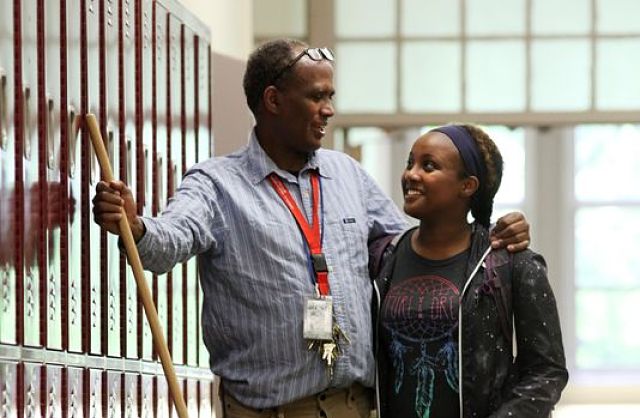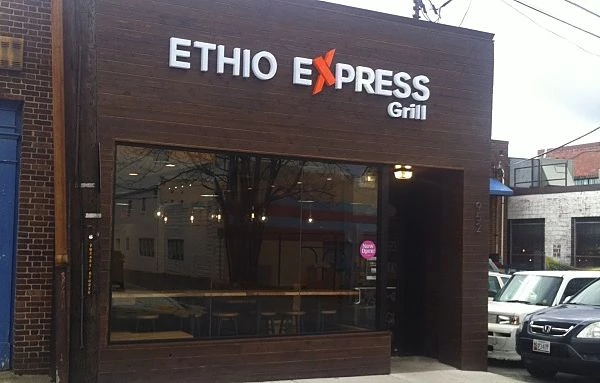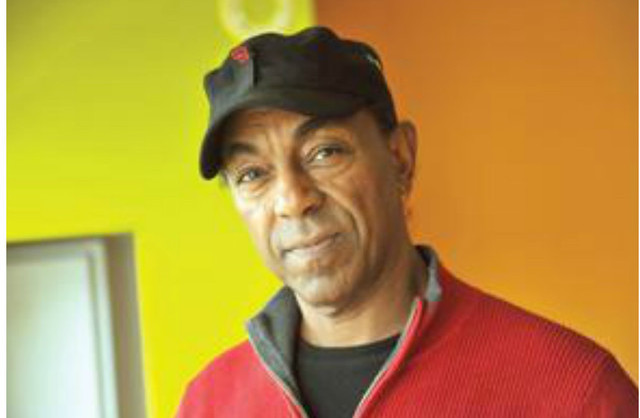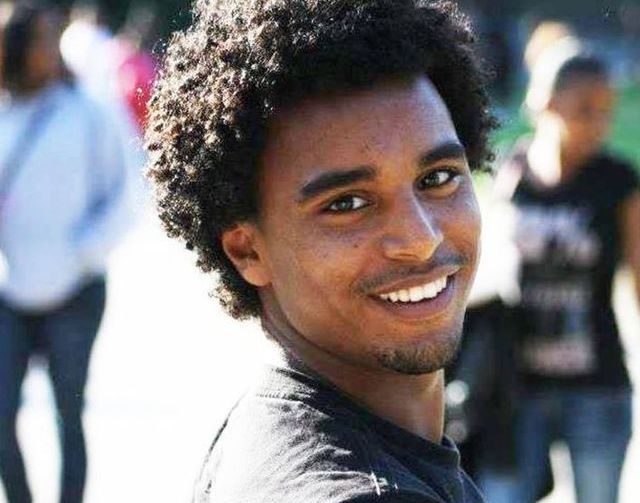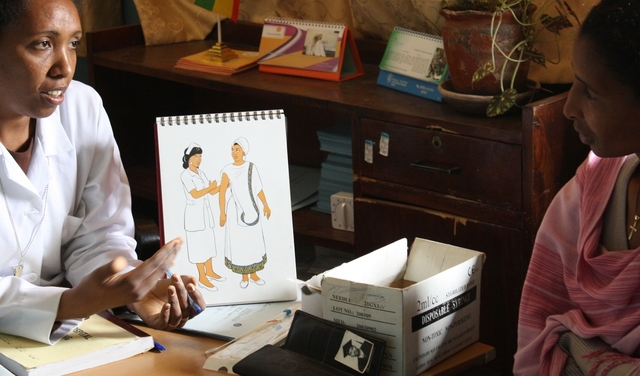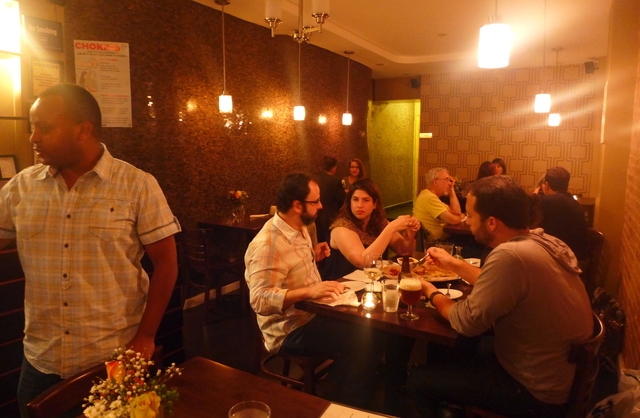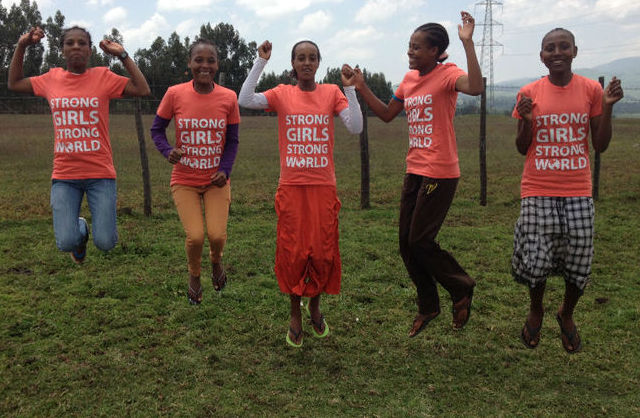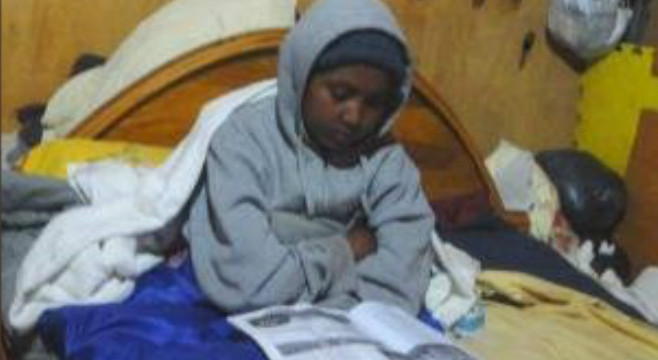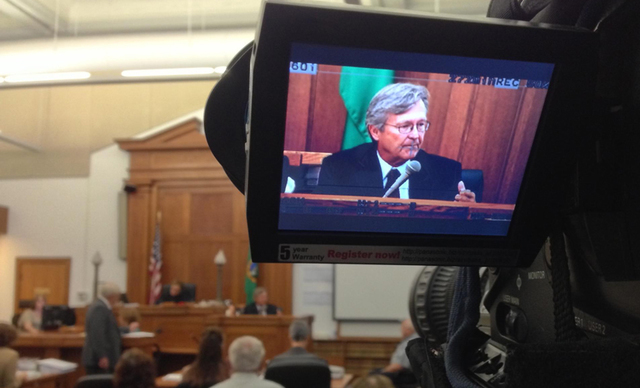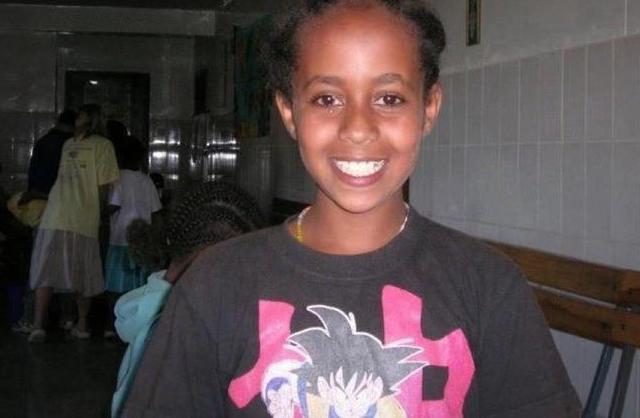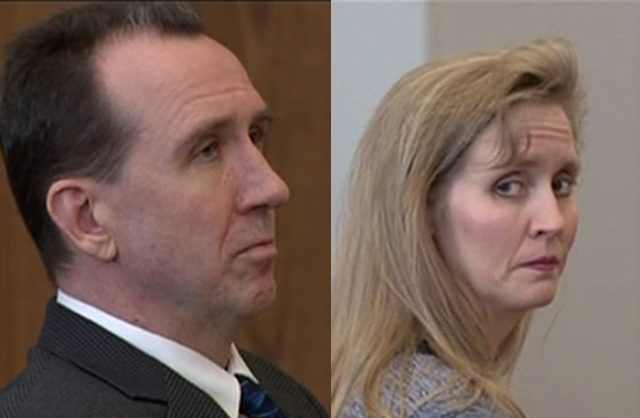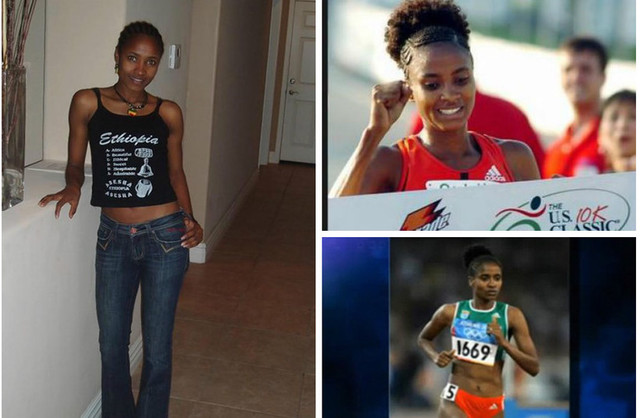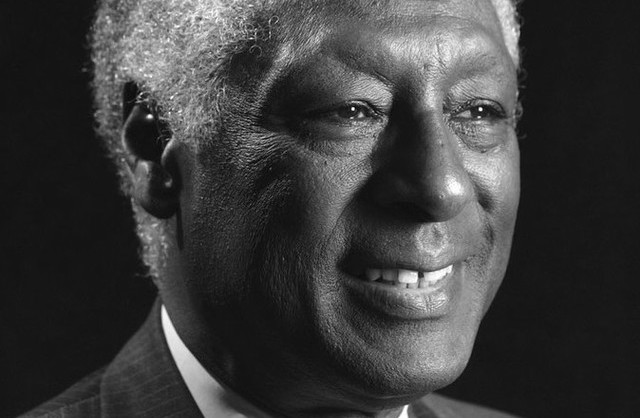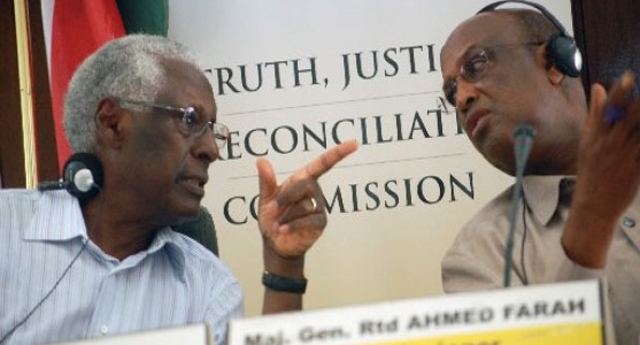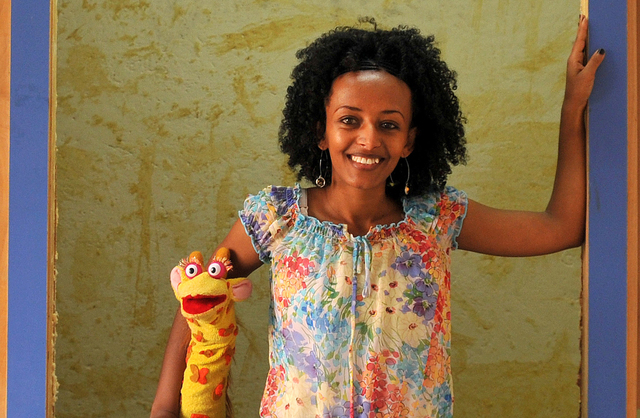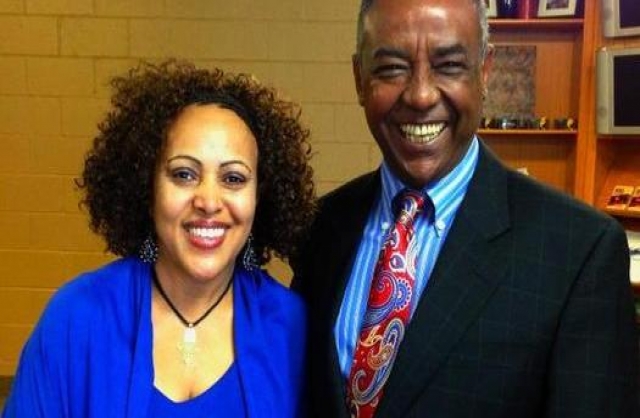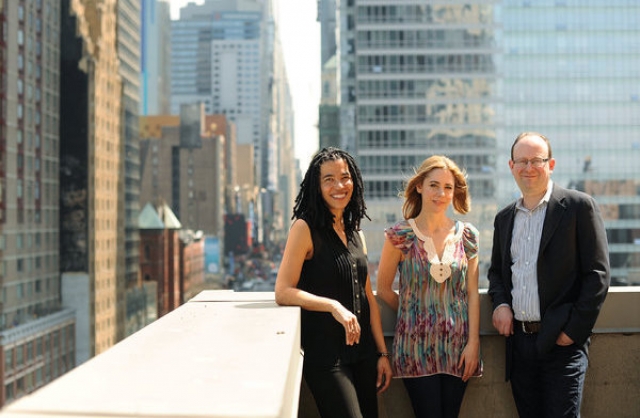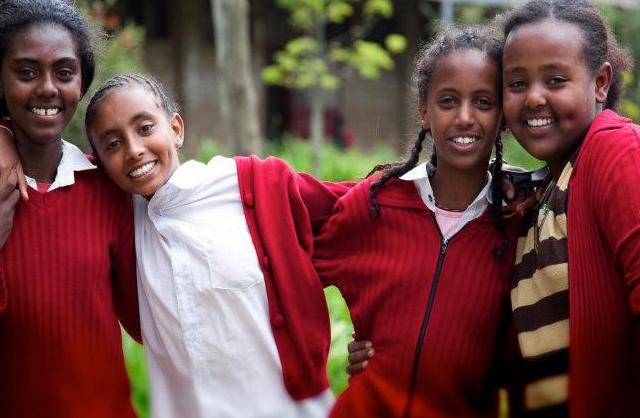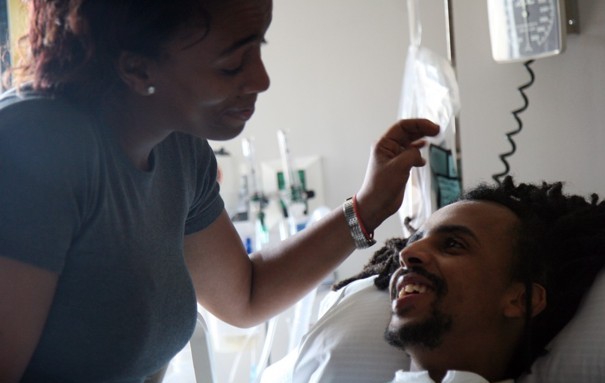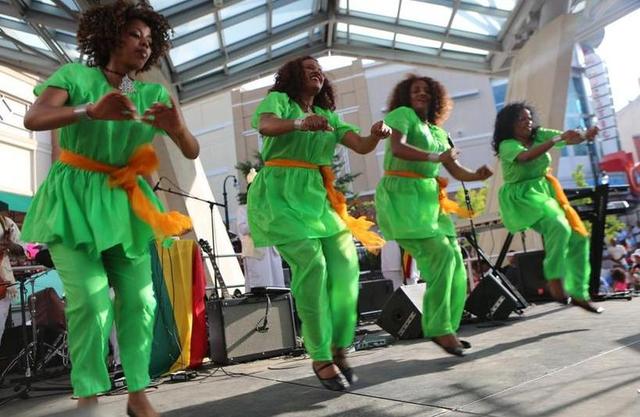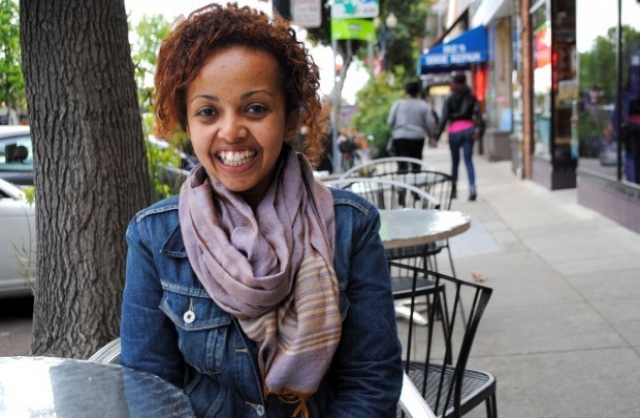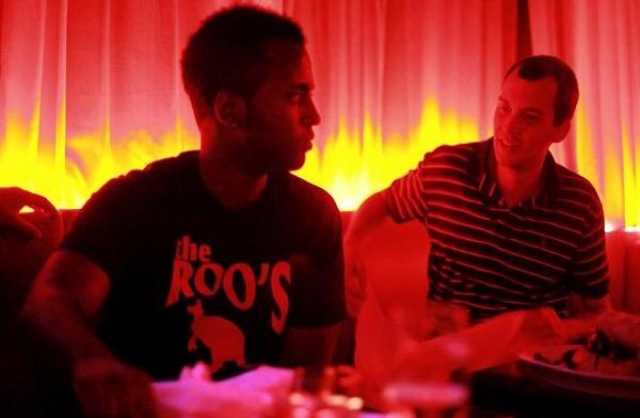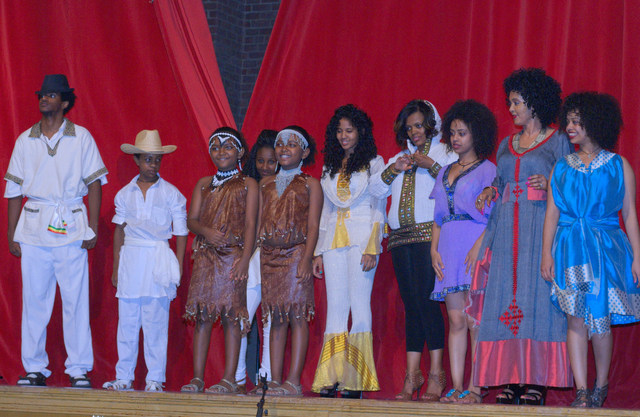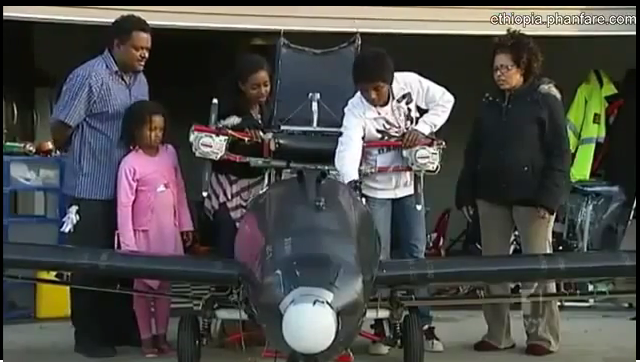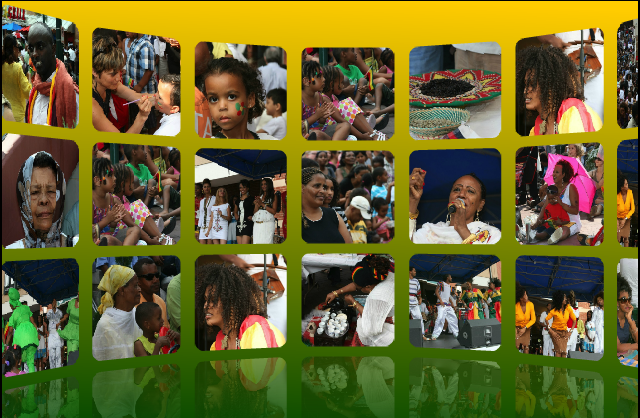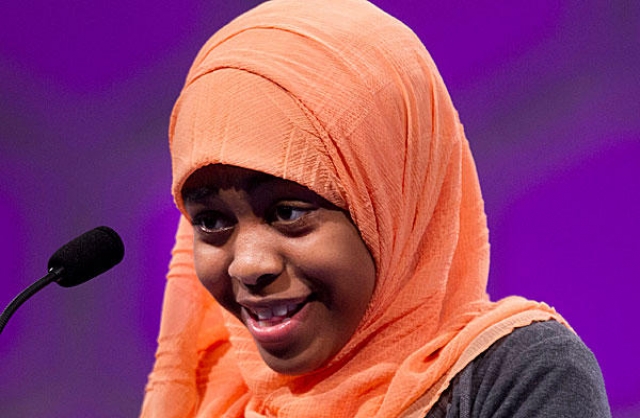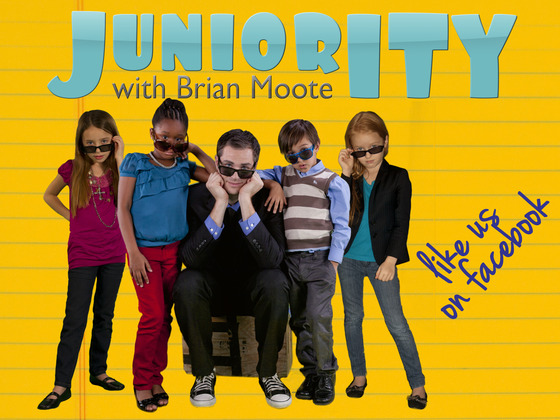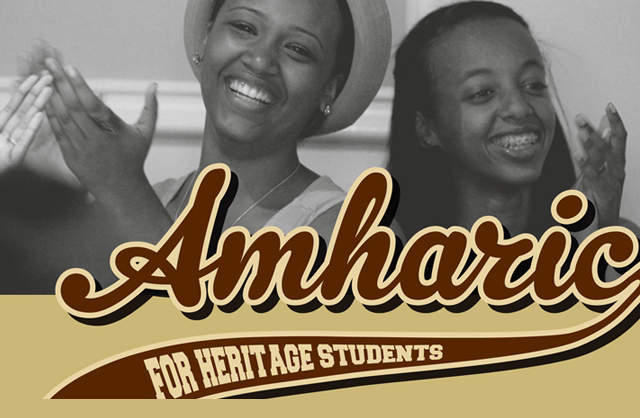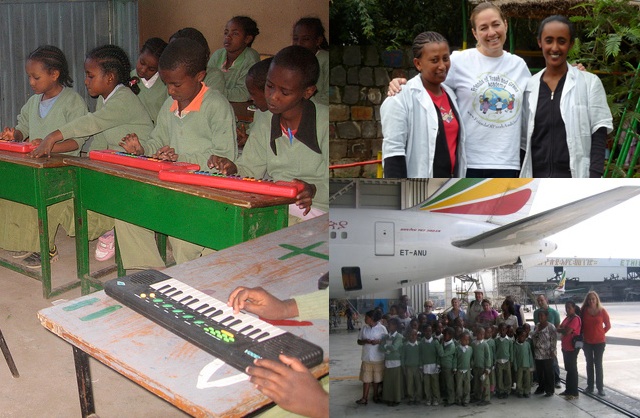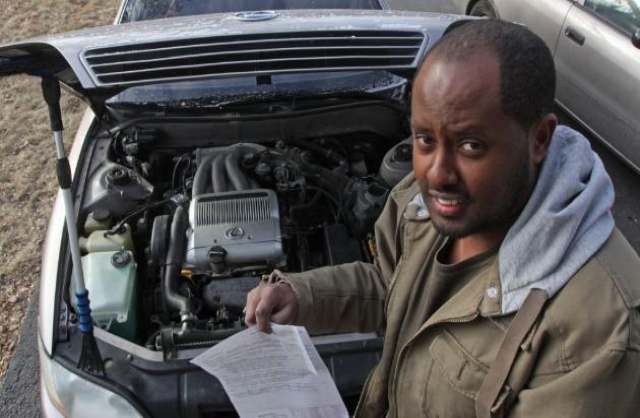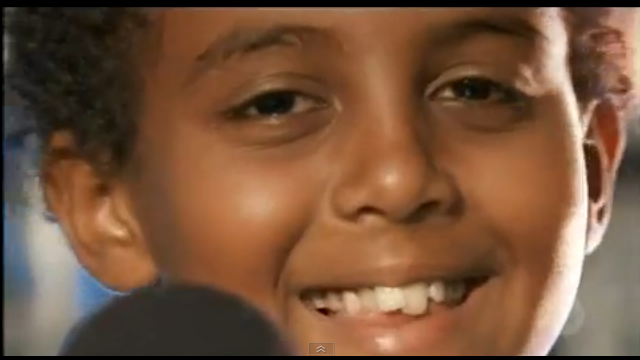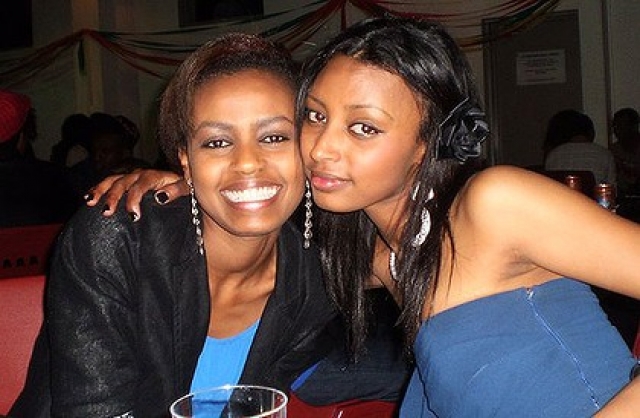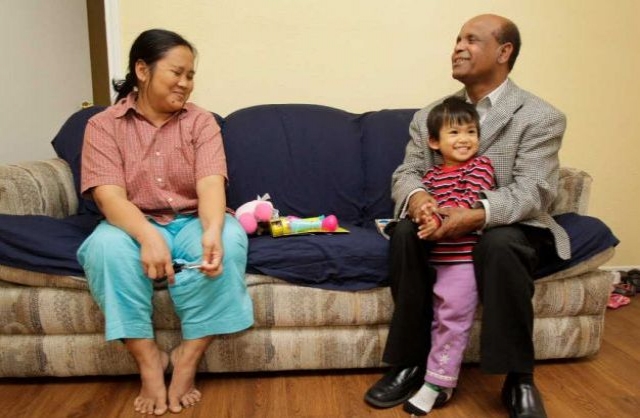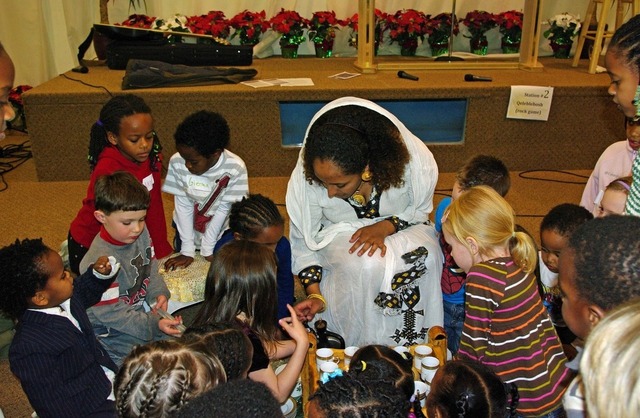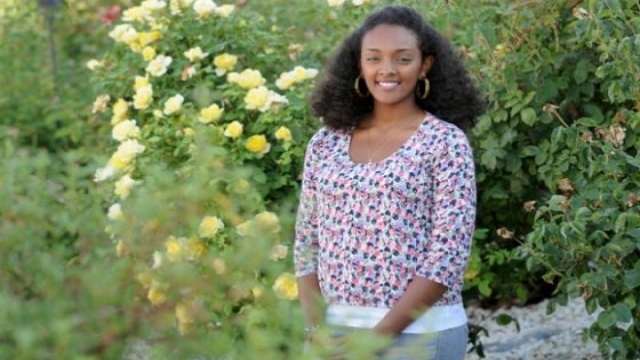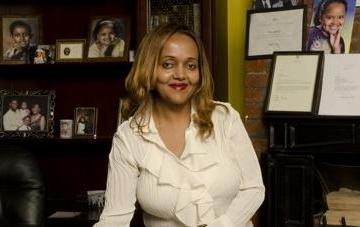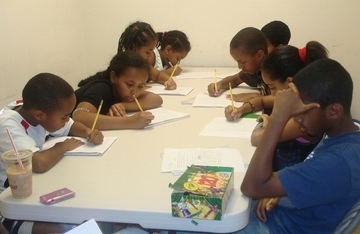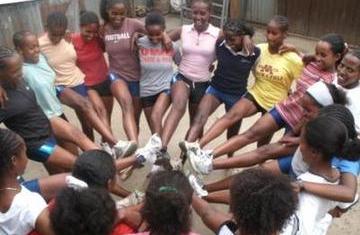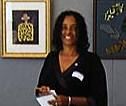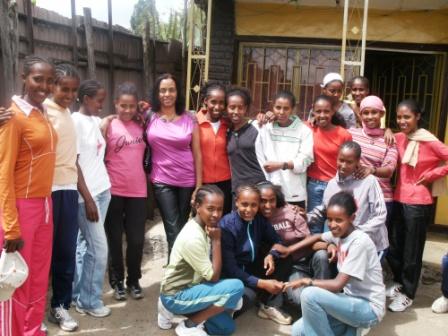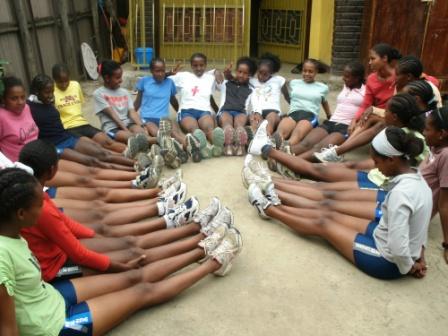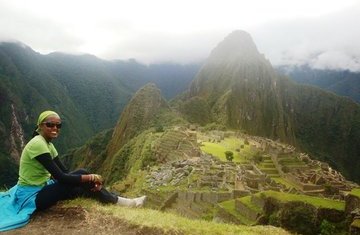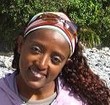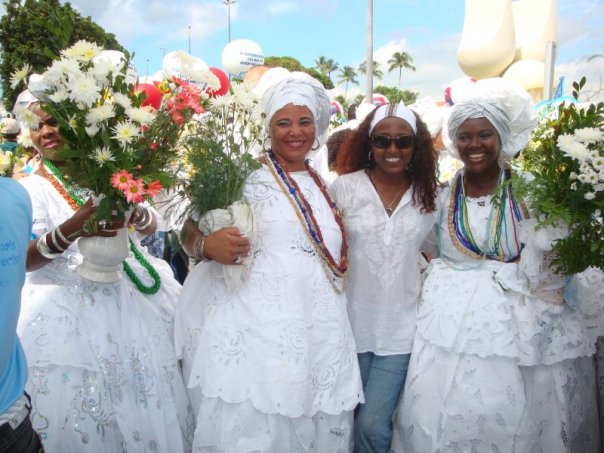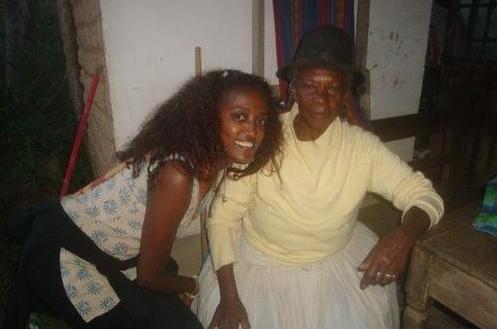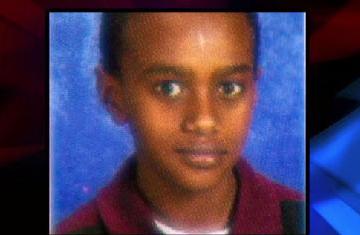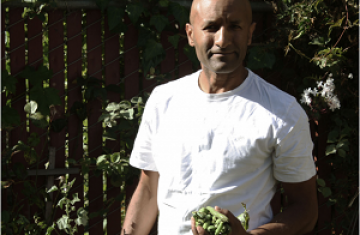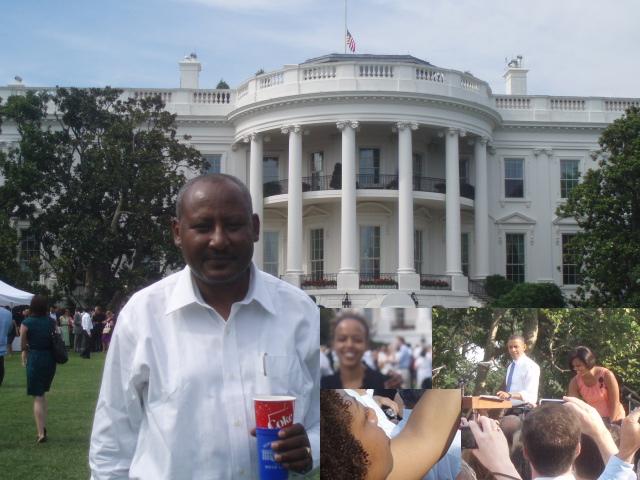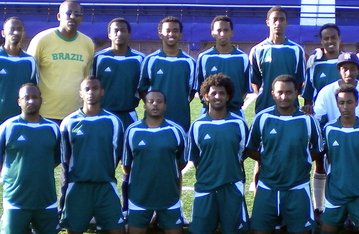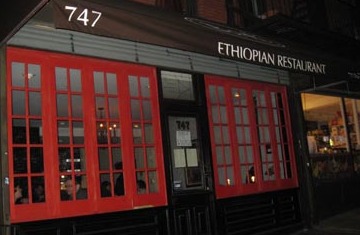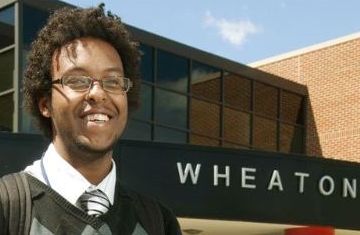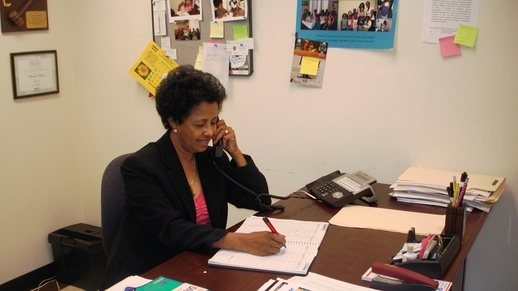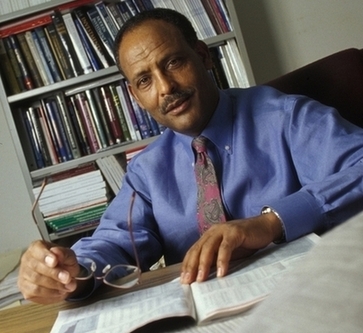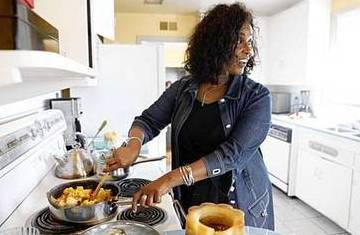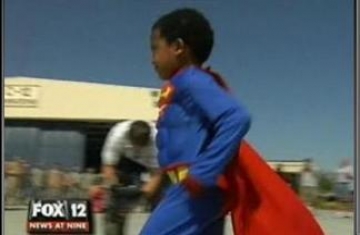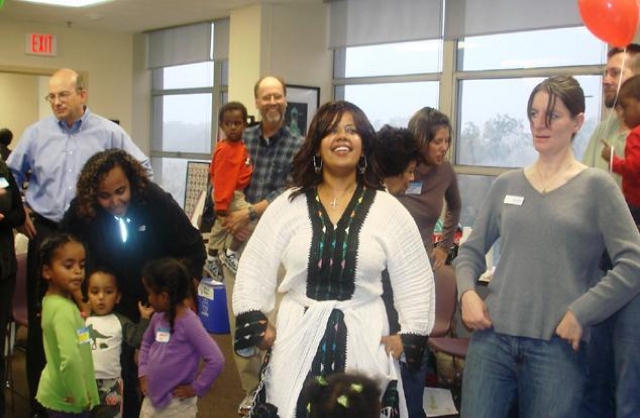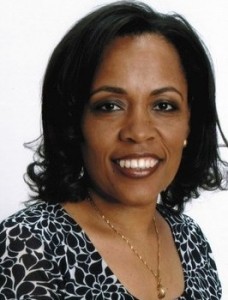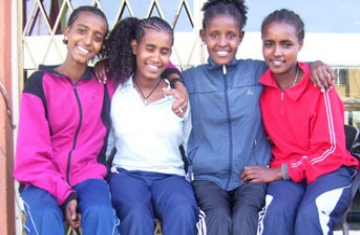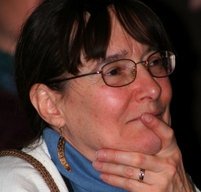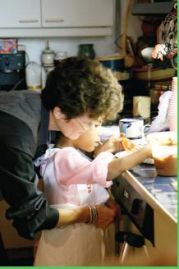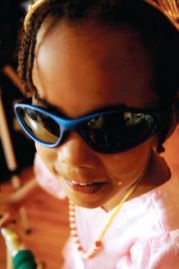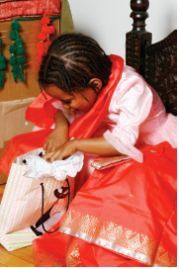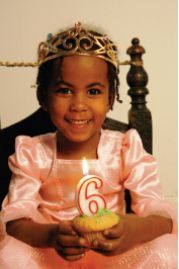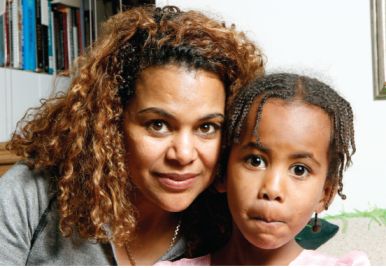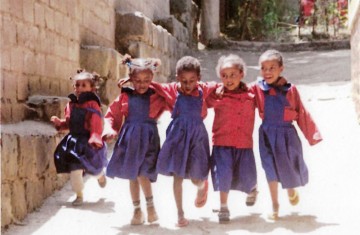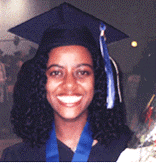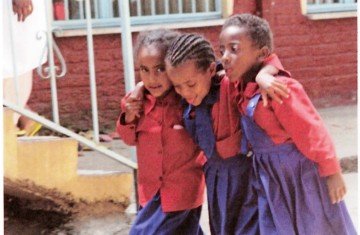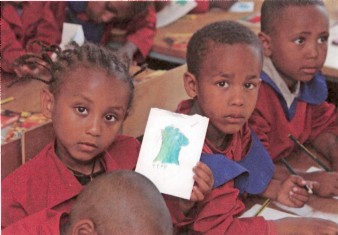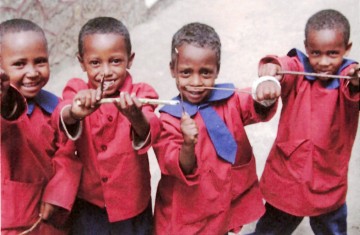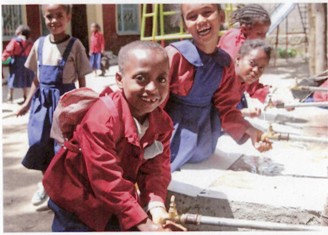 Ethiopian American Eskat Asfaw is the founder and owner of College Shuttle, a company that provides shuttle services to students in seven colleges & Universities in the DC metro area. (Courtesy image)
Ethiopian American Eskat Asfaw is the founder and owner of College Shuttle, a company that provides shuttle services to students in seven colleges & Universities in the DC metro area. (Courtesy image)
Tadias Magazine
By Martha Z. Tegegn

Published: Monday, December 13, 2010
Washington, D.C. (Tadias) – When Eskat Asfaw joined the Entrepreneurship Club in Frostburg State University’s business department as a student, he had no idea a great business venture would soon be born. When his professors pointed out that there was an unfulfilled need for transporation for college students, Asfaw had a moment of enlightenment and immediately set to work to address that gap.
“I have always wondered how students without cars moved around,” said Asfaw, who immediately brought his exciting idea to his colleagues and advisors: to provide transportation to students who reside a good two and half hours away from major public transportation stops. Asfaw then presented his idea alongside his two major investors — his parents who agreed to help him finance the purchase of his first van.
From there College Shuttle was born — “an innovative business addressing a need that is largely not met,” says his sister Alegnta Asfaw.
Today, after two years in operation College Shuttle has become a company with 7 colleges and university clients and serving close to 100 students in any given week. Asfaw runs three more vans and provides access to a dozen more.
To meet the growing demand, this young entrepreneur runs his business literally all day and night. “If I am not responding to a phone call I am checking the website (Collegeshuttles.com), or driving occasionally when the demand is high. I will take a break when my company grows to its potential.”
The self-professed music lover admits that before he bumped into this great venture he had always wanted to own a nightclub. In the past, he had supplemented his living through parties that he organized in the Metro Washington region and at Frostburg State University, where he earned his business degree.
Asfaw’s business is not only a pioneering idea but also a great job opportunity that pays well for students who are looking for weekend jobs to supplement their income. He has more than a dozen students working for him as web developers, marketers, and van drivers.
College Shuttle transports student to and from public transportation stops throughout the Baltimore and DC metro regions. “It was an instant success” said Eskat (short for Eskatnaf). “All I had to do was put some flyers up with my number and email address.” Although starting up any business includes some level of risk, his family says “he is always careful and makes sure ….he is responding to a need.”
Dr. Marty Mattare, one of his professors who was instrumental in the success of his company and still lends a hand when needed, says “Eskat has shown great persistence in his pursuit of College Shuttle. He worked very hard to make it a success and sought feedback and advice from a number of people. College Shuttle has also provided great opportunities for students to work in an entrepreneurial environment and contribute to a successful small business startup. I have no doubt that Eskat will go far with this enterprise!”
College Shuttle has received the Trident Young Entrepreneur of the Year Award. Asfaw is recognized in the Frostburg/Alleghany area for creating jobs and stimulating economic growth. According to his professor, he has inspired other students to become entrepreneurs and has himself mentored more than 15 students in Frostburg and continues to do so. His sister Alegnta says, “I believe this is the kind of leadership and innovative thinking that we want to showcase among young Ethiopians in America.”
The 26 year-old businessman left Ethiopia as a young boy in the early 90s has never been back. However, someday he wants to return with “some philanthropic project in Ethiopia—particularly in the education area.”
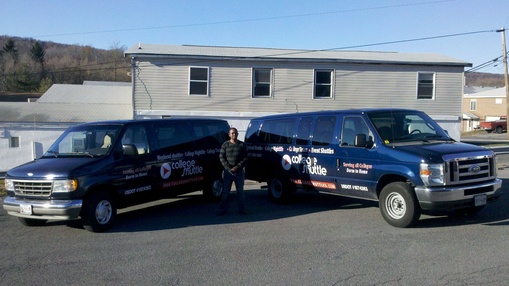
Eskat Asfaw of College Shuttle won the 2010 Young Entrepreneur of the Year award. He “was very enterprising; he had a vision of a company and worked diligently to make it successful,” says Dr. Marty Mattare, his former professor. (Courtesy Photograph
MT: How do you feel about the award and your professor’s comment?
EA: It is very humbling and nice to get everyone’s support.
MT: Tell us a bit about yourself. Where were you born? Where did you grow up?
EA: Well I was born in Addis Ababa, Ethiopia, we lived in Bole area; and then migrated to Kenya when I was about 7, then moved to America in 1996.
MT: What was it like growing up in Kenya?
EA: Kenya was nice, I went to elementary school there. I liked Kenya. I have more memories of Kenya than Ethiopia — I only remember our dog and house {in Ethiopia}.
MT: You went to college in Frostburg, Maryland. Tell me about Frostburg.
EA: Frostburg is in Western Maryland. That is where I went to school. I was a business major. I went to Montgomery college first and then transferred to Frostburg State University, and I graduated from there in 2009.
MT: I read in one of your college newspapers that your idea for College Shuttle was appluaded by the business department at Frostburg State University. Can you tell us more?
EA: I joined the Entrepreneurship Club as soon as I heard about it. I used to go to all the business conferences religiously, and when I heard about this club I had to go — who better to join than me [laughs]. The club advisor was a really nice man. He was telling us about different things that the school needs….since he was there for 27 years. One of the needs was transportation. I was wondering about transportation myself so I kind of took it to heart and kept thinking about it, writing down numbers and stuff in class. My advisors were very impressed with my idea.
MT: Transportation for whom?
EA: For the students in Frostburg. It is about 2 and 1/2 hours away…and there is no way to get there except by train or car.
MT: Where are the students from?
EA: Most of the students are from Baltimore and DC metro area.
MT: So, you were still in school when you got started.
EA: Yes, it started there and then. I didn’t know anyone. I used to go to class and then back to my apartment. I met with one guy and I asked him if he can help me to get to know people. That summer I put together some flyers with my personal information. I did the flyers a week before school started …….and the calls started coming. The majority of our customers are freshmen or sophomores and don’t own cars yet.
MT: How do you handle the logistics of running such a business?
EA: We now have an 877 toll free number as well as a web site. Most of our customers go online and register and pay online. Once they do that we send them a pickup time.
MT: Your shuttle service is limited to weekends. Why?
EA: The whole point is to get the students home for the weekend. They have different reasons for going home every weekend, leaving on Friday and returning on Sunday.
MT: Do you drop off the students at their homes?
EA: We drop off our customers at public areas close to their home such as metro stations, malls etc. It is a lot easier for their parents to pick them up when they are at a closer location. The majority of the time it is parents who make the arrangement for their kids. They would rather do that than driving two and half hours to come get their kids.
MT: How large is your customer base?
EA: We serve seven colleges now: Frostburg, West Virginia, Allegany College, Petomac State College, and three more colleges in Eastern Maryland. Our focus is just students. Our motto is students need their own transportation services. As students they have already a lot to deal with. We are just trying to fulfill the transportation part of it. Our time slots and services are flexible to students to meet their need. Students are very rash themselves. We work with their ever changing last minute decisions.
MT: What makes your business different than other shuttle services? Do you have any competition?
EA: Yes, there is a competition such as the bus line and train stations….but what we do is quite different. The way we treat our customers and the simple fact that our business is solely dedicated to students makes us preferable and it makes a world of difference to our success.
MT: How many employees do you have?
EA: I am the sole owner but I have many drivers. I also drive when necessary. I love driving. I have a lot of students that work for me, about a dozen. They work on graphic design, web designing, marketing; a lot of the work is done by the students themselves. So it is kind of a great side job for them. I set high standard for them and if they meet that standard they get paid more and they stay with me longer.
MT: How many vans do you have?
EA: We have three of our own but we do have access to many more on a need basis. Our vans are 15 passenger buses.
MT: Where do you say your entrepreneurial spirit comes from?
EA: Well, I always enjoyed business. Even when I was in high school in Silver Spring I had a lawn mowing business. My sisters used to work for me and we worked in a couple of areas in the neighborhood. I just enjoy business. When I got to college I started promoting parties. That is how I made most of my money. Then this came along and I just knew I wanted to make it a success and I truly believed in it.
MT: Do you have role model?
EA: Nick Friedman from College Hunks Hauling Junk. We have a lot of similarities and the way he transformed a simple idea to a nationwide success impresses me. I met him for a coffee once and he gave me few feedbacks and it helped shaped my business. I still communicate with him when I need to. He is my strong role model in business. On a personal level, I also look up to my father and older brother; they are great individuals that see the future clearly. And one thing I figured out as I matured is that my father is always right. Sometimes I wish I listened to him more. Another thing is my father supported all my decisions in life. He cares about my business as much as I do.
MT: Tell me about your family. How have they influenced you?
EA: Family means a lot to me. We are very close family. Everyone knows everything about everyone…my mom calls about ten times a day to checkup on me. My mom and dad were my main investors when I started the business. Without them I wouldn’t have been a business owner. They helped me buy the first van. To this day I turn to them for advice. In Ethiopia my grandparents were business owners. My mom was also into coffee business. In this country, my parents own a popular store in Chevy Chase. So from early on I understood that business played a huge role in American lifestyle. I would say, the culture in whch I grew up has a big influnce in me. Even if I grew up in America, I feel like how I was brought up makes it easier to respect my customers and easier to talk to them without feeling of entitlement. And I get a lot of positive feedback from customers saying, you are very down to earth and I think it is an Ethiopian thing.
MT: What’s the long-term plan for College Shuttle?
EA: I want to go national and hire a lot of college students. My goal, in about 6 years or so, to be in as many universities and colleges as possible. I am doing the research on the need. I see it happening already. A lot of rural universities and colleges have transportation gaps. Most of the colleges we service right now, we were asked to be there. I feel like we are doing a community service as well. Parents can have safe transportation for their kids to and from colleges. We service everyone and our customers are from all walks of life. I think it is also a great idea to explore what you can do as an individual and contribute to the work force. You will end up creating a job not only for yourself but for others too.
MT: Thank you and we wish you great success.
EA: Thank you for giving me this opportunity to share my story.
–
Related:
FSU Alumni Runs Shuttle Service for Students (The Bottom Line)
Filling a Need for a Ride Home From College (Frostburg State University eNEWS)
Other profiles by Martha Z. Tegegn
Exclusive Interview With Ethiopian Legend Teshome Mitiku (Part 1, Part 2, and Part 3)
Why Girls Gotta Run: Interview with Dr. Patricia E. Ortman
A Conversation with filmmaker Haile Gerima
 Neguse Solomon Abebe, the 2015 Homecoming King at Avondale High School in Auburn Hills, Michigan. (Courtesy photo)
Neguse Solomon Abebe, the 2015 Homecoming King at Avondale High School in Auburn Hills, Michigan. (Courtesy photo)






